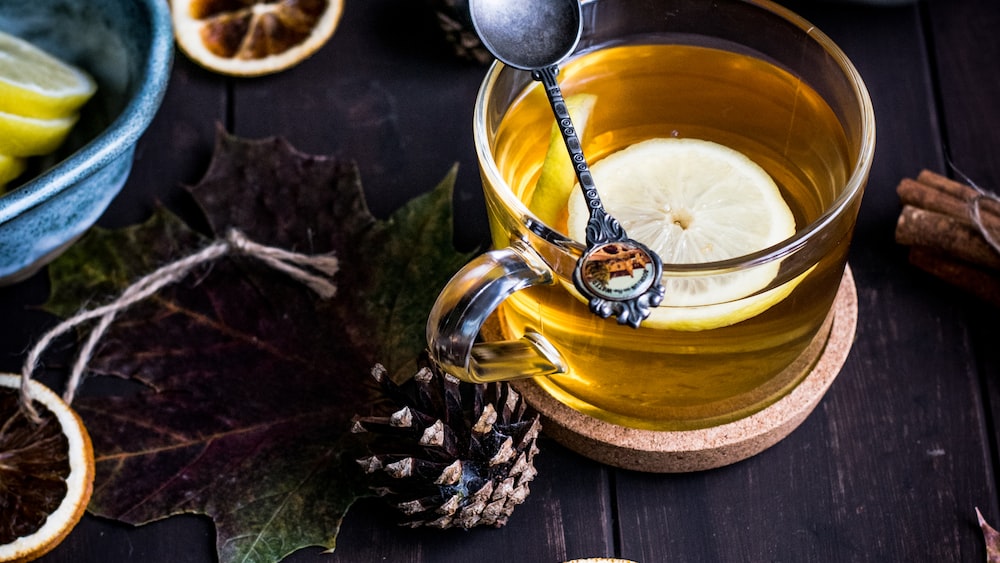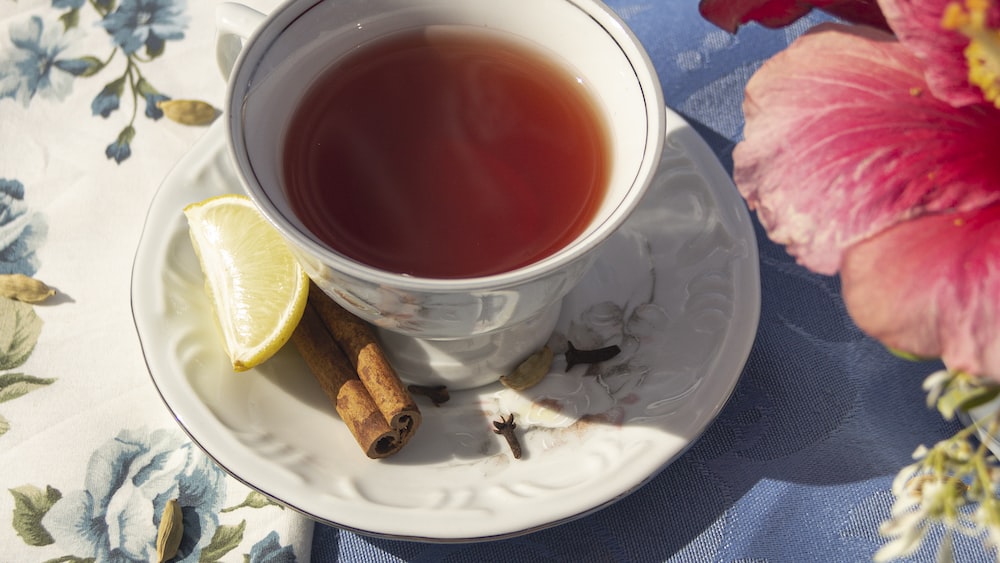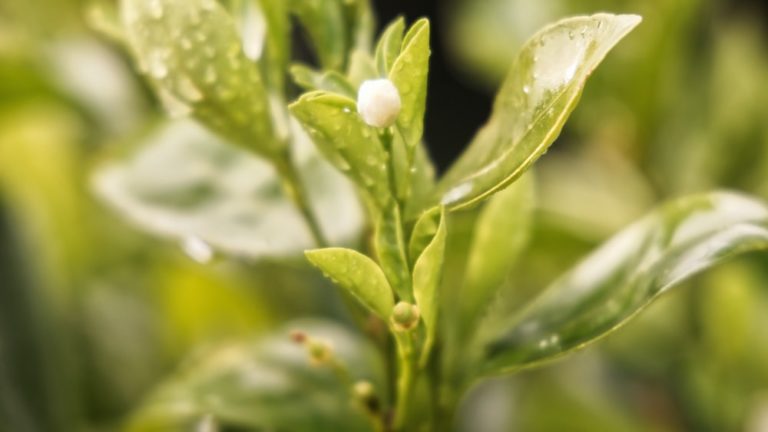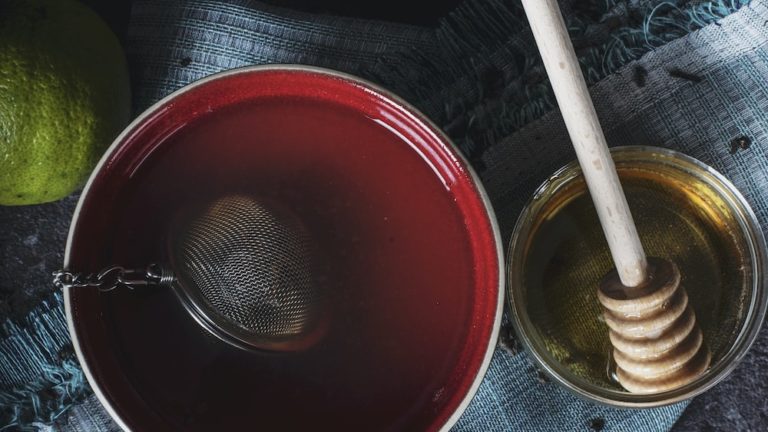Discover The Health Benefits Of Rooibos Rea Leaves: The Red Tea Wonder

Discover The Health Benefits Of Rooibos Rea Leaves: The Red Tea Wonder
Hello, tea aficionados and health enthusiasts alike! Ever sat down, sipping on your steamy cup of joe, and thought, “Why am I only limited to coffee and traditional teas?” Well, today, let’s explore the riveting world of rooibos tea leaves. Dive nose-first into the magical, swirling, ruby world of rooibos – an unassuming plant that transforms plain water into a symphony of taste and health benefits.
Remember those master illusionists from fairy tales who used to spin straw into gold? Picture rooibos as their botanical equivalent, magically morphing simple hot water into a potpourri of health benefits. Intrigued about this magical tea? Hang on to your kettle – we’re about to spill the tea, no pun intended!
Understanding Rooibos Tea
Let’s get better acquainted with our main character, shall we? Rooibos tea has been causing quite a stir (and not just in the kettle) among tea enthusiasts and health-conscious individuals. But what exactly is this tea, and why does it deserve a spot in your daily beverage repertoire?
What is Rooibos Tea?
Rooibos tea, the crimson liquid gold! Scientifically known as Aspalathus linearis, our star botanical invokes images of sun-kissed plains and wind-blasted mountaintops of South Africa, its homeland. Imagine a shrubby little prophet, with its needle-like leaves, whispering tales of health and wellness.
No, it’s not just a fancy weed that photobombed the family photo of tea leaves. It’s a maverick, a teaser of the traditional tea world, offering a caffeine-free and low-tannin alternative to conventional teas. It’s a fearless, whimsical renegade, turning heads (and taste buds).

Rooibos tea is a caffeine-free and low-tannin alternative to conventional teas, offering health and wellness benefits.
The History of Rooibos Tea
Journey back hundreds of years ago, when indigenous Khoisan people of the Cape region in South Africa discovered a beautiful, ruby-red elixir. They found these spiky little shrubs and began brewing them into a vibrant red tea. Embracing the botanical art of fermenting rooibos leaves, they inadvertently conjured a national treasure.
Fascinating, isn’t it? This humble leaf was passed down through the ages, with the ancient techniques of cultivation and fermentation remaining largely unchanged. Today, rooibos still paints the South African landscapes in crimson, offering these magical rooibos tea leaves to the world.
The Health Benefits of Rooibos Tea
So, what makes rooibos tea our caped superhero in the realm of health and wellness? Let’s explore these compelling secrets concealed in every cup of this ruby magic.
Low in Tannins and Free from Caffeine
Speak of a rebel! The rooibos tea dares to break free from two of the most common constituents of traditional tea – tannins and caffeine. That’s like Batman going incognito, minus his Batmobile or his utility belt!
If you find yourself tangled with insomnia or restlessness, the caffeine-free nature of rooibos tea might just be your north star. Plus, with insignificant levels of tooth-staining tannins, it’s like your dentist’s dream in a cup. Sprinkle a dash of sweet dreams and flash those pearly whites while savoring every sip of rooibos.
Packed with Antioxidants
Hold onto your mugs because this is where rooibos tea gets really supercharged. Brimming with beneficial antioxidants like aspalathin and quercetin, this tea wields its crimson cape to combat oxidative stress and inflammation in the body.
Antioxidants? Oh, yes! Think of them as a personal bodyguard for your cells, warding off cruel matadors of maladies. The aspalathin in rooibos tea, in particular, is known to balance blood sugar and improve insulin resistance, a crucial nod to its potential in managing Type 2 diabetes.
Quercetin, our second heavy-hitter, has been studied for anti-cancer, anti-inflammatory, and antiviral properties. As if tea time wasn’t delightfully comforting already, now it’s like having an armored knight at your table too!
Rooibos tea is packed with antioxidants like aspalathin and quercetin, which act as personal bodyguards for your cells, fighting against oxidative stress, inflammation, and potential diseases like Type 2 diabetes and cancer.
May Boost Heart Health
Pour yourself a cuppa rooibos, and you might just be pouring a love letter to your heart. Beyond its antioxidant prowess, rooibos has been found to potentially benefit heart health.
Studies indicate rooibos tea can improve heart health by positively affecting blood lipid profile and reducing bad cholesterol. Yes, it’s as if this tea moonlights as a plumber, ensuring your pipes (read: arteries) stay clean and clear!
But that’s not all. Rooibos also carries chemical compounds that help regulate blood pressure and improve circulation. Bottom line? Regularly drinking this red wonder might be your heart’s rhythm and blues. Or should we say, rhythm and brews?
May Reduce Cancer Risk
Slow your roll, folks! I’m not talking about a Hollywood film plot where a magical super brew annihilates cancer cells left and right. Instead, I’m turning your attention to the humble rooibos rea leaves. According to research, this little wonder drink shows promising potential in the fight against cancer. A study in the Mutagenesis journal suggests that the antioxidants in rooibos tea can prevent DNA damage, often considered a pathway to developing cancer.
Now, don’t just toss away your doctor’s advice and start chugging rooibos like there’s no tomorrow. Remember, the key is moderation and balance in your diet.
May Benefit People with Type 2 Diabetes
As if being a cape-wearing superhero of the tea world wasn’t enough, rooibos has also been showing up on the diabetes radar. Say hello to aspalathin and nothofagin, two flavonoids found in rooibos that have been shown to help balance blood sugar and improve insulin resistance in animal tests.
Imagine waking up to a fresh cup of earthy rooibos tea, knowing it’s potentially helping you manage your health. With the possibility of rooibos tapping its superhero cape and showing some promise in managing type 2 diabetes, each sip becomes a refreshing stand against health woes.
Rooibos tea contains flavonoids that can help balance blood sugar and improve insulin resistance, making it a potentially beneficial beverage for managing type 2 diabetes.
The Side Effects of Rooibos Tea
Strap in, lovelies! I bet you didn’t see this twist coming. Even our cape-wearing super brew packs a few quirks. But don’t panic; rooibos tea side effects are pretty minimal and tend to show up only when we go overboard on our rooibos intake.

Potential Side Effects
A handful of people might experience issues like upset stomach, liver troubles or hormonal imbalance. There are also concerns that the tea, consumed excessively, can interfere with treatments involving chemotherapy drugs. It makes sense, doesn’t it? Too much of anything is never a good idea.
Now tell me, have you ever gone through a tea overdose, consuming pots and pots only to get an irate belly in return? Oh, the irony and the ‘Indian in the Cupboard’ type of rebellion you face!
Unverified Claims
Despite the heroics, rooibos is yet to clear certain skies. Some enthusiasts tout its ability to aid weight loss and boost hair growth. However, there’s a pinch of salt involved– by that, of course, I mean that these claims lack proper scientific backing.
In the tea world, the secret always lies in enjoying each cup and celebrating the multiple potential benefits it might provide. Let’s not transform our tea time into a game of unchecked claims and expectations.
How to Brew Rooibos Tea Properly
Hold the kettles! Before you whip up your own batch of this brew, let me guide you on the epic quest of properly steeping the rooibos rea leaves.
Step-by-Step Brewing Instructions
- Heat the water to a near boil — we are talking about 208°F or 97°C. Any hotter and you might end up summoning the wrath of the tea gods with a bitter brew.
- Add a tablespoon of rooibos rea leaves to your cup or teapot.
- Pour in the heated water and let it steep for 5-7 minutes, but please don’t stage a vigil by the clock. Tea-making should be relaxing, not nerve-wracking!
- Strain the leaves from your tea and enjoy it on its own, or go wild with added sweeteners or a dash of milk.
Trust me, it’s like hosting a little tea ceremony in your kitchen. You might even find yourself wearing a ceremonial robe and whispering ancient tea prayers. If that’s not your cup of tea, simply enjoy knowing that you’re brewing the rooibos rea leaves to perfection.
Tea Sommelier’s Tips
Alright folks, it’s that part of the tea party where we spill the good stuff – the brewing secrets that will make your rooibos tea experience truly exceptional. First things first, use pure, fresh water. Sounds basic? You’ll be amazed by how ordinary tap water with its cocktail of minerals and chemicals can ambush your tea’s flavor.
Now, for our next powerful punch of wisdom: the water temperature. With other teas, this might be a fussy affair (raises pinky finger), but there’s no aristocracy in the rooibos tea kingdom. Boiling water (around 100°C) is completely acceptable and won’t damage the integrity of these rugged South African leaves.
Last, but by no means least, comes steeping time. The longer you allow the rooibos rea leaves to luxuriate in the hot water, the stronger your brew will become. A good 5-10 minutes will create a nicely balanced cup, but if you’re a fan of strong flavors, letting it slow-dance in the pot for up to 15 minutes won’t hurt.
Your Rooibos Tea Questions Answered.
1. What is the difference between green and red rooibos tea?
Is there a difference between green and red rooibos tea, you asked? Quite indeed, dear reader! Red rooibos is the classic version, undergoing an oxidation process that results in its distinct red-brown color and sweet, nutty flavor. On the other hand, green rooibos is kept raw and unoxidized, leading to a grassier, slightly more bitter profile.
2. Can rooibos tea be consumed during pregnancy?
Regarding rooibos tea during pregnancy, the good news is, yes, it can typically be consumed! Its natural properties, such as being caffeine-free and rich in antioxidants, make it a suitable beverage for expectant mothers. However, always consult your healthcare provider before adding anything new to your diet during pregnancy.

3. How much rooibos tea should I drink daily to get the health benefits?
The magic number when it comes to daily consumption of rooibos tea is largely dependent on personal factors. However, based on most recommendations, 3-4 cups per day is considered optimal to reap its health benefits.
4. Can I drink rooibos tea if I have a specific health condition?
Oh, our dear reader, the question of drinking rooibos tea with a specific health condition is best handled by your doctor or dietitian. While rooibos tea is widely recognized for its health benefits, if you have a health condition, it’s always wise to consult your healthcare professional before introducing any changes to your diet.
Conclusion
As we reach the end of this delightful journey through the world of rooibos rea leaves, I hope you’ve been able to grasp not only how this humble South African bush has risen to global acclaim, but also how it can enrich your daily wellness routine. With its mighty health benefits, easy brewing process, and delectable taste, rooibos tea is more than just a beverage, it’s an exclamation of life.
In the grand careening carousel that is life, sometimes it’s the simplest pleasures – a warm, comforting cup of rooibos tea – that make the ride worthwhile. So, whether it’s your first taste or your hundredth, I invite you to savor every sip as you embark or continue your wellness journey with rooibos rea leaves.
Fellow tea enthusiasts, as we part ways for now, remember: every brew tells a story and every cup brings us together. So, until our next tea tale, brew boldly, sip slowly and live joyfully. Stay steeped in wonder, dear friends!
In warmth, Zoe






